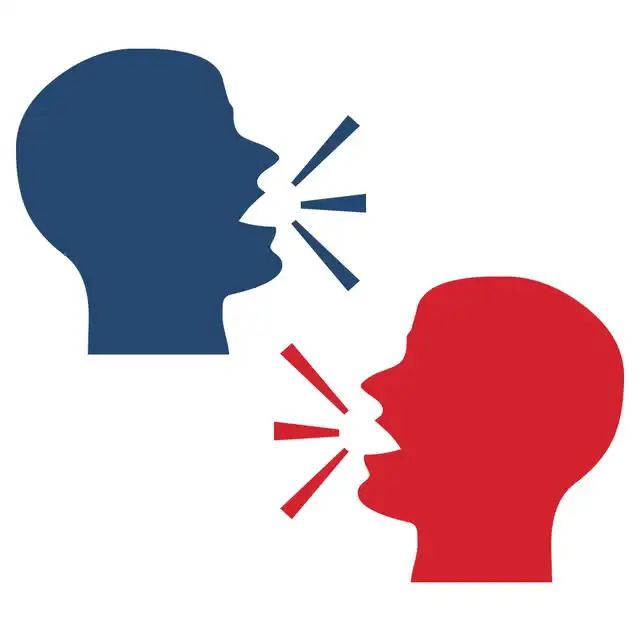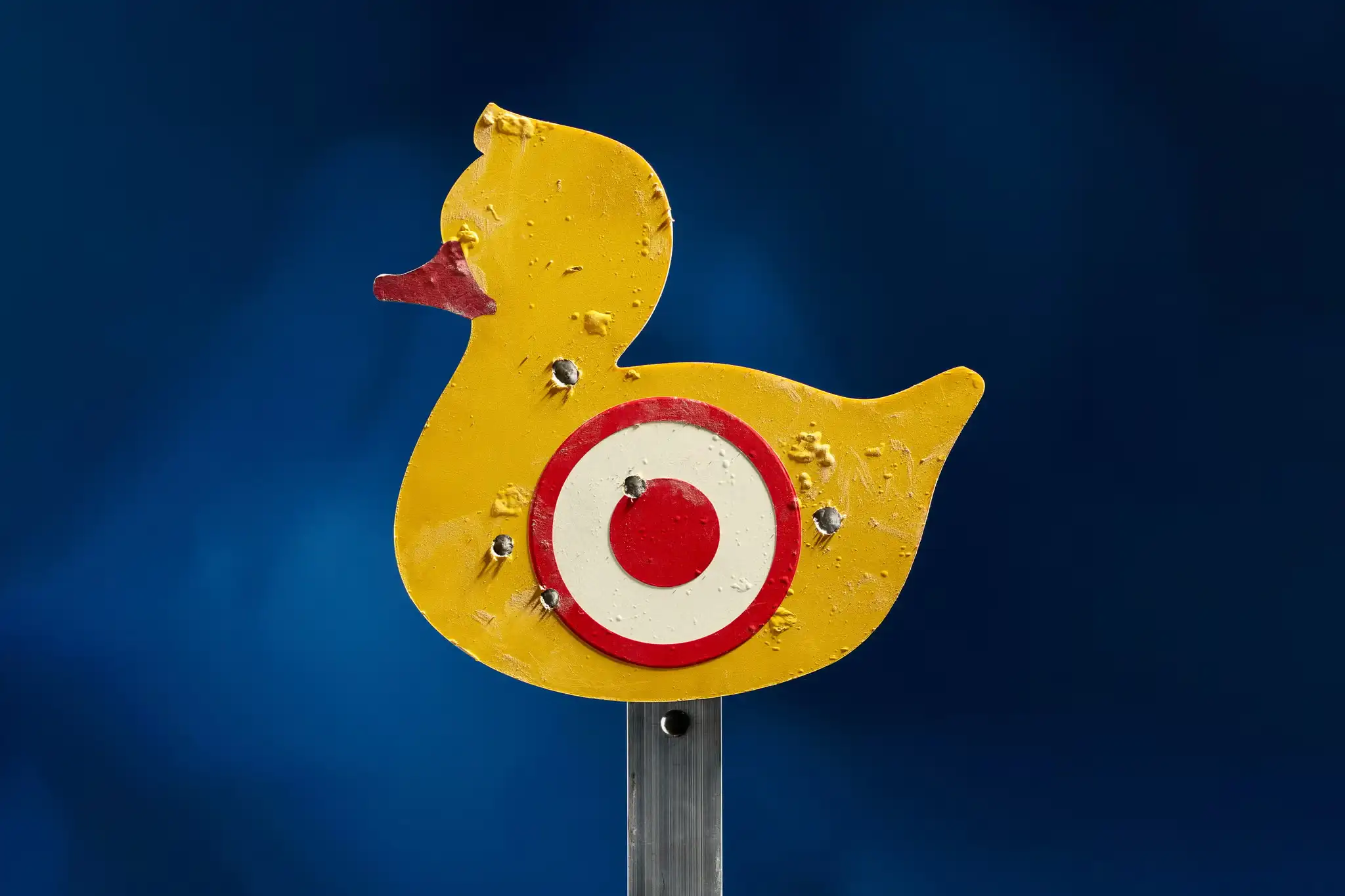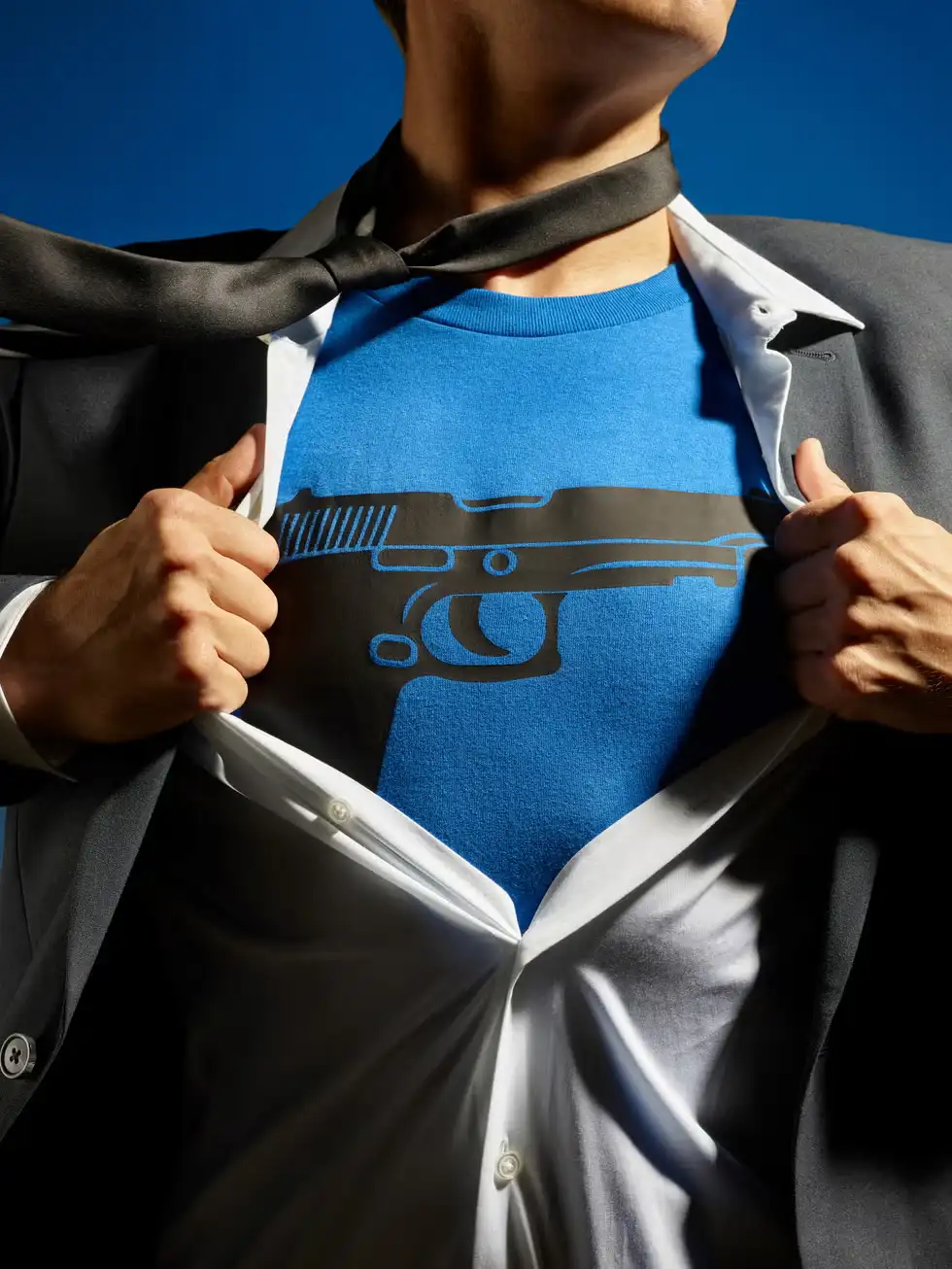In America, two out of every five men own a firearm. Depending on who you ask, that figure might be comforting — or deeply unsettling. But behind the debates over rights and regulations, there’s a more personal, more emotional story that often goes untold: why men own guns, how it affects their sense of self, and what it means for their mental health.
To explore those questions, an exclusive national survey of 1,211 male gun owners was conducted. The responses reveal a nuanced, sometimes contradictory, and often surprising picture of the intersection between masculinity, mental wellness, and firearms in the United States.

Why Men Own Guns
While the political debate often centers on what guns are owned and where they’re carried, the deeper question is: why? Our data shows that the motivations behind gun ownership are rooted in personal experience — especially when it comes to when a man first fires a gun.
Timing Shapes Intent
- Among men who first used a gun before age 18, 57% now own one primarily for protection, and 35% for hunting.
- For those who started between 18 and 24, protection shoots up to 79%, while hunting drops to 15%.
In short: earlier exposure often correlates with cultural or recreational use; later exposure, with self-defense.
How Gun Ownership Impacts Behavior

The Surprising Risk Among One-Gun Owners
You might assume that someone with a larger gun collection is more prone to risky behavior. But according to the survey, men who own only one gun are statistically more likely to use it in anger, fear, or even harm.
- 2x more likely to have fired in anger
- 50% more likely to fire out of fear
- 60% more likely to have threatened someone
- 25% more likely to have injured someone
Those figures contrast with men who own four or more firearms, suggesting that familiarity — or possibly training — may temper impulsive use.
Politics and Firearms

Ownership Trends by Party
Gun ownership among Republican men remains higher overall, with 28% owning four or more guns compared to just 15% of Democrats. Meanwhile, nearly half of Democratic respondents reported owning just one firearm.
Risky Behaviors Across the Aisle
When it comes to impulsive or threatening use of firearms, Democratic gun owners reported higher rates:
- 16% of Democrats said they’d fired in anger vs. 10% of Republicans
- 18% of Democrats had threatened someone with a gun vs. 11% of Republicans
- 13% of Democrats said they had used a gun to get what they wanted, compared to 6% of Republicans
Despite these differences, both groups showed strong emotional responses to gun violence and shared similar backgrounds in firearm exposure during childhood.
Masculinity, Identity, and Firearms

Guns as a Source of Confidence
Roughly 1 in 5 men said that owning a gun made them “feel more like a man.” While 34% remained neutral on the question, 23% agreed to some degree — and those who strongly agreed were significantly more likely to have used a gun in anger, to have threatened someone, or to have injured someone.
- 13x more likely to fire in anger
- 6x more likely to injure someone
- 4x more likely to issue a threat with a firearm
Experts suggest this points to a broader issue: for some men, a gun may become a tool to compensate for perceived vulnerability or loss of control.
The Psychology of Absence
Around 20% of men reported feeling anxious or inadequate when their gun wasn’t nearby — highlighting the depth of emotional reliance firearms can carry.
Anger, Indifference, and the Assault Rifle Effect

AK-47 Owners Report Higher Anger
Men who primarily own AK-47s or AR-15s were twice as likely to report firing in anger — and twice as likely to say they felt “indifferent” when hearing about mass shootings, compared to those who own revolvers or shotguns.
A Nation of Fear — and Safety
Perception of Danger
- 51% strongly agreed “We live in a dangerous world”
- 32% somewhat agreed
These numbers point to a widespread belief among gun owners that the world is unsafe — which may help explain the psychological comfort many derive from owning a weapon.
What Gun Ownership Does to Mental Health
- Only 3% of men said their mental health got worse after acquiring a firearm
- 64% reported no change
- 31% said their mental health improved
Guns, in some cases, offer emotional benefits: connection to tradition, community, and a sense of preparedness. But there are real risks, too — especially with suicide, which remains the leading cause of gun deaths in the U.S.

Moving Beyond Black and White Thinking
Dr. Amy Barnhorst, a psychiatrist and expert on firearm injury prevention, emphasizes the need to avoid extreme thinking. “The goal isn’t to say guns are bad and nobody should have them,” she says. “But it’s also dangerous to overstate what they can do for you emotionally or psychologically.”
For gun owners and non-owners alike, the conversation needs more empathy, less judgment, and a greater willingness to sit with complexity. Guns are more than objects — they are symbols, identities, tools, and sometimes, crutches.
Understanding how men relate to firearms isn’t just about politics or policy. It’s about mental health, masculinity, and what it means to feel safe — in the world and in your own skin.



